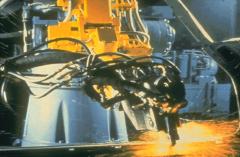
Almost anything that requires movement involves fluid power.
Applications range from simple automation to highly specialised computer controlled systems. By combining a variety of components with electronics, economical and technically sound solutions to problems of all kinds can be produced.